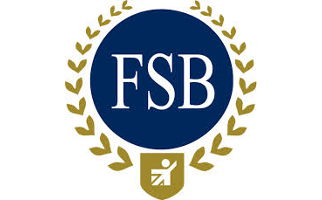Thursday September 10th 2015

The Federation of Small Businesses (FSB) has published a comprehensive report into the UK digital communications market for small businesses. It shows that more firms are utilising new technologies, but reveals gaps between business customer expectations, the quality of service received, and the promises made by providers.
The FSB has proposed a new voluntary code of practice for providers and a digital Universal Service Obligation (USO) which would help Scottish small firms realise their digital ambitions.
The report found many small firms using better connectivity to deliver real savings, improved productivity and new growth opportunities. While this is encouraging, some business owners remain frustrated with the quality of service they receive.
Most small businesses recognise the opportunities of doing more online – but many are not confident they will get a quality telecoms service on which they can build their business. As a result, the FSB is calling for the industry to sign up to a new voluntary code of practice that they should adopt for their business customers. The FSB also calls for business broadband suppliers to commit to delivering minimum standards on speeds, reliability, and provide transparent customer information and contracts.
Mike Cherry, FSB policy director, said: “Large numbers of small firms are using new digital technology to revolutionise the way they do business, but the market still has barriers stopping firms from seizing these opportunities. The success of the digital revolution has led to ever higher expectations from businesses and consumers which at times the market struggles to deliver. Business customers feel confused by the complexity of the market and struggle to assess how new services would benefit their business.
“A voluntary code of practice will help simplify matters and build trust between business customers and service providers. It will also allow small firms to better understand what services are available and how they can integrate these into their future business strategy. Getting this right will provide a boost to future economic growth and productivity.”
The UK already buys and sells more online than any other G20 country. However, this success story is also at the heart of businesses dissatisfaction with the quality of their broadband and mobile service – as businesses are ever more reliant on digital connectivity, more feel frustrated when the service is not as expected. FSB research found 99 per cent of small firms rate the internet as highly important to their business. Over half (51%) of FSB members already offer services online and a further 15 per cent plan on doing so in the future.
FSB members say the service they get often falls short of what they need, or have been told to expect. The FSB calls for this issue to be addressed by agreeing to a new Universal Service Obligation (USO), which sets a minimum speed of at least 10Mbps. Providers should also be challenged, the FSB says, to advertise minimum speeds as opposed to the current practice of advertising maximum possible speeds.
Andy Willox, FSB Scottish policy convenor, added: “While Scotland’s digital infrastructure is improving, we need to see decision-makers ensure that we don’t fall behind. Improved connectivity can connect businesses in remote communities, town centres and city offices to the global economy.
“Firms based in Dingwall, Dundee and Dulwich all deserve an equally good service from telecoms providers. Our report makes the case for a level playing field for the UK’s businesses.”
Tweet Share on Facebook